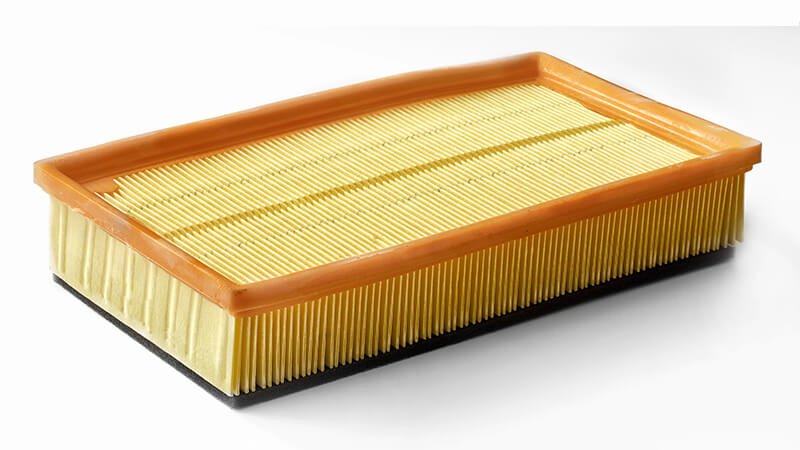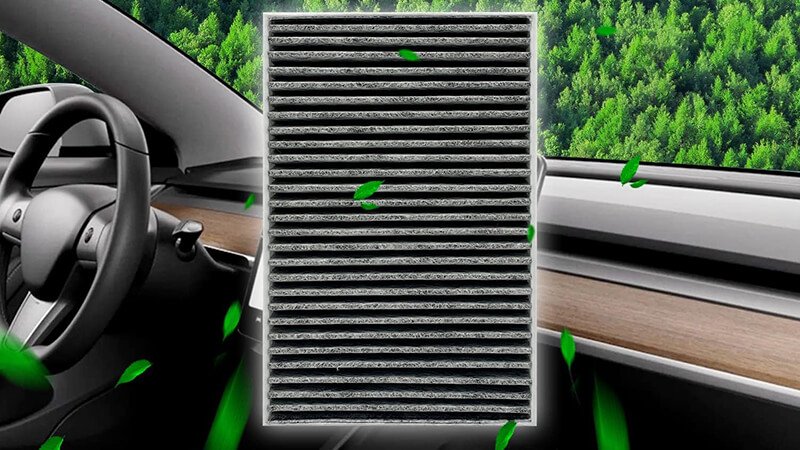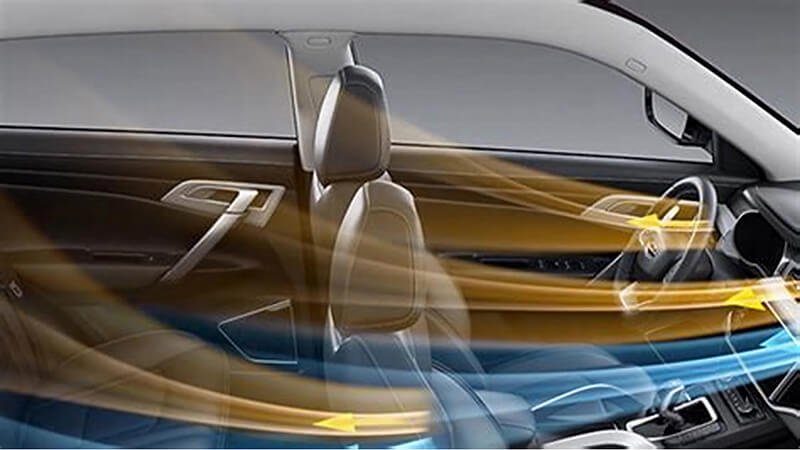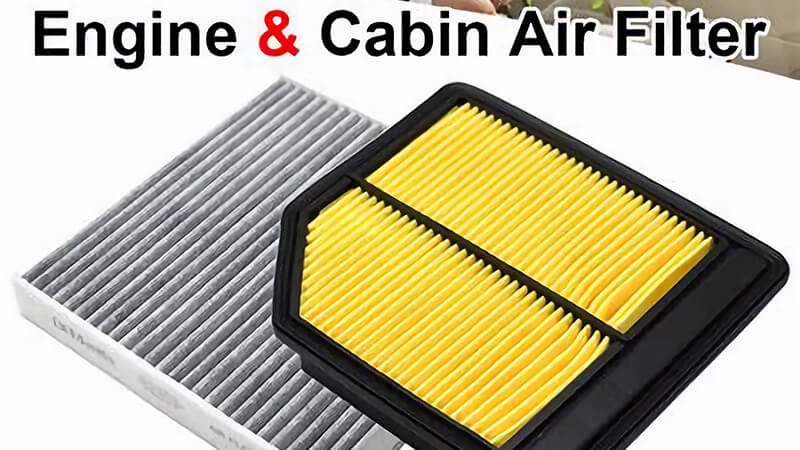When I talk with buyers, many ask if cabin air filters are just optional. Some think it is only a comfort feature. But skipping this part often brings hidden costs and long-term damage.
Yes, cars really need cabin air filters because they trap dust, pollen, and exhaust particles. Clean filters protect health, improve comfort, and prevent damage to HVAC systems, which reduces repair costs and keeps vehicles performing well.
I learned early in my work that a cabin air filter is not a luxury. It is an essential part of the car’s system. Without it, both passengers and the vehicle itself suffer. Let me share how these filters matter and why choosing the right one from Runex Auto makes all the difference.

Do you really need a cabin air filter in your car?
Some drivers ask if it is okay to drive without a cabin filter. They think it is not as critical as engine parts. But this is not true.
You really need a cabin air filter in your car because it blocks harmful particles from entering the cabin. It keeps air clean, protects health, and prevents damage to heating and cooling systems.
Why Filters Are Essential
Runex Auto cabin filters1 trap dust, pollen, soot, and even fine exhaust particles. I believe this is important because unfiltered air lowers comfort and health. In polluted or urban zones, air quality drops fast without filters. For families, clean cabin air reduces allergy risks. For fleets, it lowers complaints from drivers.
Table: Benefits of Cabin Air Filters
| Aspect | With Cabin Filter | Without Cabin Filter |
|---|---|---|
| Air Quality | Clean, reduced allergens | Dust, pollen, pollution |
| Passenger Comfort | Fresh, odor-free air | Exhaust smell, mustiness |
| HVAC Protection | Long-lasting system | Clogged, costly repairs |
| Brand Reputation | Strong | Damaged by complaints |
Customer Story
One wholesale customer in a smog-heavy city once had endless complaints. Drivers reported foul odors and weak airflow. After we introduced Runex Auto carbon and HEPA filters2, complaints dropped by 80%. This change proved that filters are not optional—they are key to both comfort and reputation.

Does a cabin air filter affect gas mileage?
Many people ask if a clogged filter lowers fuel economy. The answer is not direct, but the effect is real.
A dirty cabin air filter does not directly change gas mileage like an engine filter. But it strains the HVAC system, which makes the blower motor work harder and indirectly increases fuel use.
Indirect Fuel Impact
When airflow is blocked, the HVAC system uses more power. In cars where the blower motor strains, energy demand rises. That can show up as reduced fuel economy, especially in stop-and-go urban driving. With clean filters3, energy is used more efficiently.
Table: Effect on Fuel and System
| Condition | Energy Use | Fuel Impact |
|---|---|---|
| Clean Filter | Smooth airflow | No extra strain |
| Clogged Filter | Restricted airflow | Indirect increase in fuel |
Why Procurement Managers Care
Even if the effect is small, buyers in competitive fleets care about every cost factor. When hundreds of vehicles run with clogged filters4, total fuel and repair costs add up. Runex Auto filters are designed with consistent airflow capacity to help fleets lower hidden energy waste and reduce HVAC wear.

How to tell if a cabin air filter needs replacing?
Drivers often miss the signs of a dirty filter. They think the system is weak, but the problem is often airflow restriction.
You can tell a cabin air filter needs replacing when airflow weakens, musty odors develop, or defogging slows. Regular checks every 12,000–15,000 miles or once a year prevent these issues.
Key Warning Signs
- Weak heating or cooling airflow
- Persistent musty or exhaust odors inside
- Slow windshield defogging
- More allergy or dust complaints
Table: Symptoms vs Risks
| Symptom | Risk if Ignored |
|---|---|
| Weak airflow5 | Blower motor strain and failure |
| Musty smell | Mold growth6 and customer complaints |
| Poor defogging | Safety hazard in winter |
| Allergy symptoms | Passenger health concerns |
My Experience
In my work, I saw many clients underestimate this cost. A clogged filter strains blower motors and reduces HVAC life. One client faced a spike in warranty claims because of this. After we trained them to check and replace filters on time with Runex Auto products, claims dropped, and customer trust returned.

Can you run AC without a cabin air filter?
Some think removing the filter improves airflow. They believe it is an easy fix. But this is a mistake.
You can run AC without a cabin filter, but it exposes the HVAC system to dust and debris. This short-term gain leads to long-term damage, odor issues, and costly repairs.
Short-Term vs Long-Term
Yes, air may seem to flow stronger without a filter. But dust, pollen, and even leaves enter directly. They clog the evaporator, create mold, and reduce system life. The money saved on filters quickly turns into repair bills.
Table: With vs Without Cabin Filter in AC Use
| Aspect | With Cabin Filter | Without Cabin Filter |
|---|---|---|
| Airflow | Smooth and filtered | Strong but dirty |
| Odors | Controlled | Musty and foul |
| HVAC Durability7 | Protected | High risk of failure |
| Cost Over Time | Lower maintenance | Higher repair costs |
Why I Always Recommend Filters
I once tested AC performance in cars with no cabin filter. At first, airflow was fine. But after months, evaporators filled with debris. Repairs cost far more than filter replacement. For me, the choice is simple: a certified cabin filter8 like those from Runex Auto is a small price for system protection and clean air.

Conclusion
Cabin air filters9 are not just accessories. They protect health, improve comfort, and extend HVAC life. They may not directly affect fuel the way engine filters do, but clogged filters bring hidden costs. From my experience, drivers in polluted areas see the most value in advanced carbon and HEPA options. For procurement managers, using certified Runex Auto filters means fewer complaints, lower warranty claims, and stronger customer trust. That is why I always say: cars really do need cabin air filters.
-
Discover how Runex Auto cabin filters enhance air quality and comfort, crucial for health and reducing allergy risks in polluted areas. ↩
-
Learn about Runex Auto's advanced filtration technology that significantly improves air quality and reduces complaints. ↩
-
Explore how clean filters enhance HVAC efficiency and fuel economy, crucial for fleet management. ↩
-
Learn about the impact of clogged filters on fuel costs and vehicle performance, vital for procurement decisions. ↩
-
Understanding the impact of weak airflow can help you prevent costly repairs and ensure efficient HVAC performance. ↩
-
Exploring the effects of mold growth on air quality can help you maintain a healthier living environment. ↩
-
Learn how cabin filters can enhance HVAC durability and prevent costly repairs. ↩
-
Explore the advantages of cabin filters to ensure clean air and protect your HVAC system. ↩
-
FInd the best auto cabin air filter from Runex Auto. ↩













